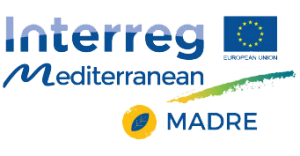10/2015
Abeille is an action research project that aims to highlight the obstacles to the development of agro-ecological food systems in small municipalities of the Hérault and Gard Departments and to identify stakeholders’ initiatives that could overcome these obstacles. Therefore, it analyses how agro-ecological and food issues are taken into account at territorial level and connects local authorities and researchers around this issue.
Contact details
Location
Departments of Hérault and Gard, Occitanie Region, France
Stakeholders
∙ Project leader: UMR Innovation (Research Unit of INRA-SupAgro Montpellier)
∙ Partner local authorities: Montpellier Méditerranée Métropole (Montpellier 3M), Authorised Agricultural Land Association (AFAA), Intercommunal Association of Coastal Ponds (SIEL), Saint-Dionisy Municipality
∙ Farmers of the studied municipalities
Objectives
∙ Spreading a culture of agro-ecology within studied municipalities through strengthened exchanges between institutional stakeholders, academia and farmers
∙ Co-designing operational indicators for the implementation of agro-ecological actions in the studied municipalities
∙ Observing and analysing innovative initiatives developed in studied municipalities to produce actionable knowledge
Legal framework & Budget
Abeille is funded by Fondation de France and Fondation Carasso. The project is coordinated by the AgriCités team of UMR Innovation and involves 3 institutional partners (Montpellier 3M, SIEL and Saint-Dionisy municipality).
Activities
Activities vary depending on the concerned municipality. The project first identified and characterised the agro-ecological dimension of studied initiatives from 3 complementary perspectives (farmers, consumers and
institutional players) to produce actionable knowledge: characterisation of farms, of governance models developed by local stakeholders for their initiatives, of learning tools and mechanisms, of inhabitants’ perceptions regarding local agriculture and its products, etc. The project then focuses on the facilitation of exchanges between stakeholders and the support to agro-ecological initiatives.
>Innovation & Outcomes
Project outputs include a guide on agro-ecological initiatives and practices dedicated to local institutional players. It also produced a typology for the implementation of agro-ecology in farms of the studied Departments. Thanks to Abeille support, the Saint-Dionisy Municipality acquired land for organic agriculture in partnership with private entities (for instance Perrier/Nestlé) and started supplying school canteens with local organic food products. A farmer grocery store and community gardens applying agro-ecological practices were also created in Saint-Dionisy. In Villeneuve les Maguelone, local stakeholders are mobilising land for reconstituting “agricultural islands” dedicated to livestock and cereals production and defining production specifications for each farmer.
Main obstacles & Next steps
The main obstacle to support activities provided by the project is the mobilisation of land, as most land-owners are reluctant to let their plots for a 9-year farm lease for farming in these peri-urban areas where demographic growth has led to continuous house building and rising land prices.
More on :
https://umr-innovation.cirad.fr/projets/abeille







